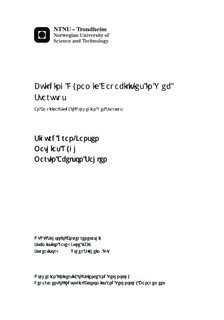Building Dynamic Capabilities in Web Startups: An Empirical Study of Norwegian Web Startups
Abstract
Purpose: This thesis explores how web startups operating in a crowded, fast-moving and highly competitive marketplace can gain competitive advantage through building dynamic capabilities and what these capabilities consist of. Design/methodology/approach: Firstly, insight was obtained through reviewing key themes within classic resource based theory and entrepreneurship theory. Newer empirical research on entrepreneurial success factors, as well as popular science and advice given by expert web entrepreneurs was then reviewed. Combining this, a framework of dynamic capabilities in web startups was synthesized. Qualitative empirical data was collected from interviewing founders and key people in four active Norwegian web startups. From the empirical findings in these interviews, the synthesized framework was iterated to account for important factors that were found to apply specifically for web startups. Lastly, a set of propositions was derived from the combination of the synthesized framework and the empirical findings.Findings: It was found that many of the contributions both from established contributors, newer contributors and popular science build on the same principles, albeit with a different degree of practical versus theoretical approach. By bridging different literature and approaches, this thesis contributes to clarify many of the invented terms found in the literature and operationalize them in practice for what they actually mean for web startups, and much of this is probably applicable for startups in general. From the empirical data it was found that web startups have important differences from other types of companies and startups. This was e.g. planning on very short time spans (most planned on a weekly basis or shorter), the ability of employees to do work outside of their expertise areas and the ability to learn or acquire new skills fast according to continuously changing market needs.Research limitations/implications: The propositions have both empirical and theoretical backing, but the empirical backing is limited to four cases, all in Norway. It would be useful to test the propositions on larger sample sizes, and preferably also to include cases from other contexts and cultures than Norway.Practical implications: Entrepreneurs in web startups should focus on building a great team and company culture. Policy makers should consider introducing programming
